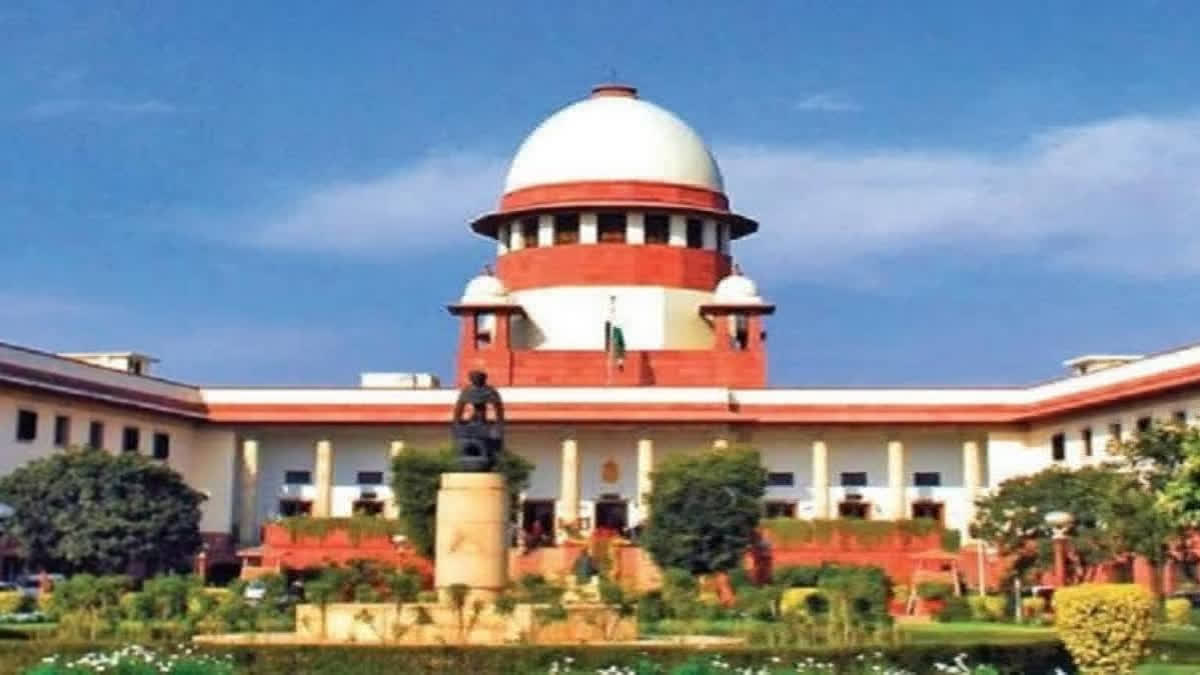New Delhi: The Supreme Court on Monday put on hold the operation of the communications issued by the child rights body National Commission for Protection of Child Rights (NCPCR) urging states to shift students of unrecognised madrassas to government schools.
The matter came up before a bench led by Chief Justice of India D Y Chandrachud and comprising justices J B Pardiwala and Manoj Misra. Senior advocate Indira Jaising represented the Muslim organisation Jamiat Ulema-i-Hind before the bench. It was contended before the bench that communications of the NCPCR and consequential actions of some of the states needed to be stayed.
The Muslim organisation has challenged the action of governments of Uttar Pradesh and Tripura directing that students of unrecognised madrassas should be shifted to government schools.
The apex court ordered that child rights body communication issued on June 7 and June 25 this year should not be acted upon and the consequential orders of the states shall also remain stayed.
An oral request was made by Jaising to grant the petitioner liberty to implead all states/UTs in the petition.
The apex court allowed the Muslim organisation to make states, other than Uttar Pradesh and Tripura as parties to its petition. The petition was filed through advocate Fuzail Ahmed Ayyubi.
The petitioner moved the apex court claiming these decisions were an infringement of the right of religious minorities to impart education as per Article 30 of the Constitution.
The petitioner said the apex court, in a long line of judgments, stressed that while all persons have a right to not only freely practise, profess, and propagate their religion, but also establish and administer institutions for religious and charitable purposes, the religious and linguistic minorities are also conferred with the right to establish and administer institutions of their choice.
The petitioner said it is aggrieved by a complete abridgement of this right initiated by the National Commission for Protection of Child Rights (NCPCR) which has sought action taken report as to "implementation of RTE Act' by the Madrassas" and has directed that recognition of Madrassas not complying with the RTE Act be withdrawn.
"The NCPCR has issued such communications to not only Chief Secretaries of all States but also to the Secretary, Department of Education & Literacy, Ministry of Education, Government of India, and has required, asserting authority under the RTE Act, when the statutory mandate, as per Section 1(5) of the RTE Act, explicitly provides that the provisions thereunder are not applicable to Madrassas, Vedic Pathshalas & institutions imparting religious instruction," said the plea.
The plea submitted that this curious exercise by the NCPCR has resulted in a communication dated July 10, 2024, by the Ministry of Education to the Education Secretaries of all States/UTs and it has already risen its head at least in the States of Uttar Pradesh and Tripura.
"A domino effect has thereafter followed in the State of Uttar Pradesh, with further arbitrary notices being issued by various District Magistrates virtually threatening the Madrassas to close down and forcing the students studying in such Madrassas to be enrolled in other schools," said the plea.



